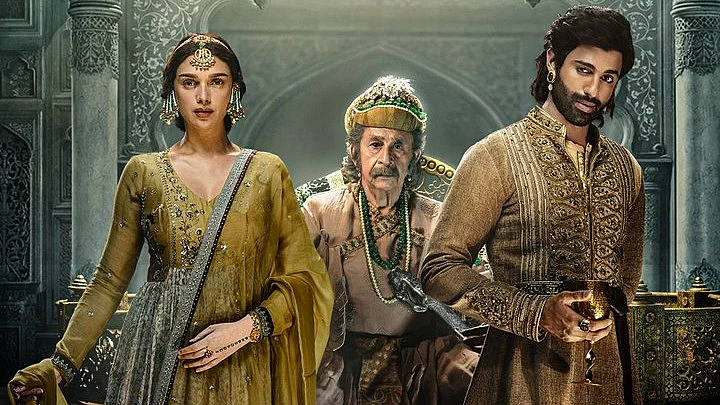Taj: Divided By Blood had all the right ingredients to become the Mughal Game of Thrones– scandal, debauchery, family feud and a forbidden love story. However, it falls short each time it cuts back on these elements that could have transformed an otherwise underwhelming story into an engaging one.
The plot is pretty straightforward – Akbar (Naseeruddin Shah) is on a quest to find the next capable ruler of the Mughal throne, asserting that the firstborn may not be the best choice. His three sons - Salim, Murad and Daniyal - are interested in following in their father’s footsteps to varied degrees. Salim is preoccupied with drinking, Murad is busy bullying anything that moves and Daniyal is often swayed by others to take a firm stand on the matter.
In all honesty, the 10-episode series directed by Ron Scalpello does not have a clear-cut antagonist – Mirza Hakim (Rahul Bose) may have been the obvious choice but he is quickly sidelined. The three brothers and their competency or rather, incompetency occupies the primary chunk of the plot.
And although the character of Anarkali (Aditi Rao Hydari) was promised to be one of the major characters of the show – her actual presence is inconsequential – she doesn’t have much to do other than look gorgeous and gaze longingly at her prince. Unfortunately, Salim and Anarkali’s relationship seems premature to have any lasting impact on the plot. However, this infatuation is also seemingly the crux of the story.
Akbar is arguably the beating heart of the show. He controls almost all the characters with an iron grip and every time someone falters they are executed. It’s pretty simplistic and rightfully so and even though his wives seem to have some influence over him it’s seldom strong enough to drive the plot into motion.
Moreover, Shah is more than convincing while essaying the role of Akbar. Bose may not be at his villainous best as Mirza Hakim but he makes do with the cards he is dealt with. Aashim Gulati's Salim leaves no stone unturned to fit into the mould of the lovesick hero - but there are only so many ways in which you can look inebriated. In the end, it's Aditi's compelling presence that deserved more attention but got none.
One of the major pitfalls of the show is its incapacity to dig a little deeper into the characters – Salim is an opium lover with a heart of gold, Jodha (Sandhya Mridul) is a concerned mother, Akbar is a ruthless ruler – their characterization can be condensed in three to four adjectives.
And perhaps it’s a deliberate decision to not pepper the narrative with the much-needed oomph. Although, it does try, in it's own way. Its lack of complex characterization is saved sometimes by the opulence of the sets. The world-building is almost believable but the needless pinning, especially on Salim’s part, seems out of context as the budding love between him and Anarkali never truly came to fruition.
One of the major reasons why Game of Thrones was a triumph was due to its attention to detail. HBO did what television had never done before. It tapped into themes that were otherwise taboo and created something new out of them. Despite the divisive opinions the last season brought on, nobody can take away from its reverberating success.
Taj, on the other hand, fails to push the envelope. And unfortunately, when one compares it to Sanjay Leela Bhansali and SS Rajamouli's crafty world-building, the show falters. Yet this desi Game of Thrones could very well learn from its shortcomings and come back stronger in the next season.
(At The Quint, we question everything. Play an active role in shaping our journalism by becoming a member today.)
